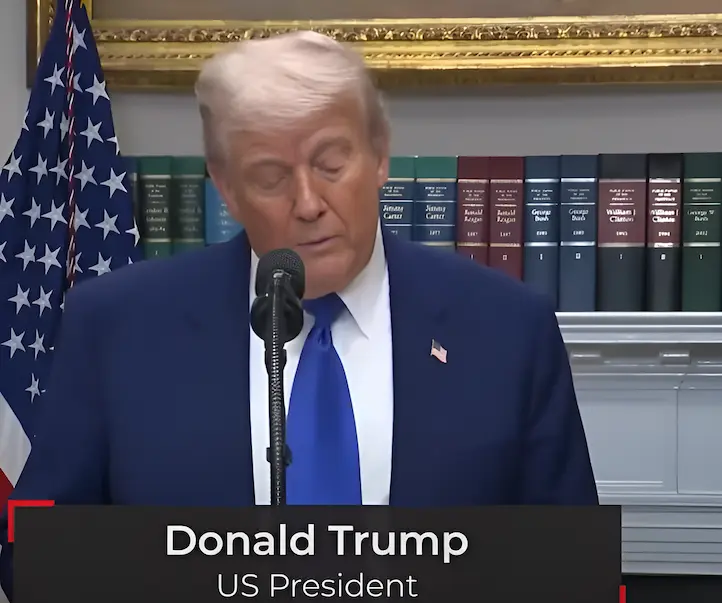
Trump’s latest travel ban restricts entry from 12 nations, sparking debate over national security and immigration policies
In a move that has reignited global debate, President Donald Trump has signed a sweeping travel ban, restricting entry into the United States from 12 countries, citing national security risks. The decision, which echoes his controversial 2017 travel restrictions, aims to curb potential threats by tightening border controls and enhancing vetting procedures.
The new travel ban affects Afghanistan, Myanmar, Chad, the Republic of the Congo, Equatorial Guinea, Eritrea, Haiti, Iran, Libya, Somalia, Sudan, and Yemen. Additionally, seven other nations—Burundi, Cuba, Laos, Sierra Leone, Togo, Turkmenistan, and Venezuela—face partial restrictions.
Background: Trump’s Travel Ban History
Trump’s first-term travel ban, often referred to as the “Muslim Ban”, initially targeted seven predominantly Muslim countries. The policy faced legal challenges, underwent multiple revisions, and was ultimately upheld by the Supreme Court in 2018. However, President Joe Biden revoked the ban in 2021, calling it “a stain on our national conscience”.
Now, with Trump back in office, the new restrictions reflect his hardline stance on immigration and national security.
Which Countries Are Affected?
The 12 nations facing full entry bans include:
- Afghanistan – Lacks a competent central authority for issuing passports and has high visa overstay rates.
- Myanmar – Historically uncooperative in accepting back removable nationals.
- Chad – Exhibits high visa overstay rates, indicating disregard for U.S. immigration laws.
- Republic of the Congo – Fails to meet U.S. screening and vetting standards.
- Equatorial Guinea – Has one of the highest visa overstay rates among affected nations.
- Eritrea – Lacks criminal record transparency and refuses to accept deported nationals.
- Haiti – Has seen mass illegal immigration into the U.S. in recent years.
- Iran – Designated as a state sponsor of terrorism.
- Libya – Struggles with government instability, raising security concerns.
- Somalia – Faces ongoing terrorist threats from groups like Al-Shabaab.
- Sudan – Has a history of harboring extremist groups.
- Yemen – Engulfed in civil war, making vetting procedures unreliable.
Partial Restrictions on Seven Other Nations
In addition to the full bans, seven countries face partial entry restrictions:
- Burundi
- Cuba
- Laos
- Sierra Leone
- Togo
- Turkmenistan
- Venezuela
These nations will see limitations on immigrant and non-immigrant visas, including B-1, B-2, F, M, and J categories.
Reactions and Global Impact
The announcement has sparked mixed reactions. Supporters argue that the ban enhances national security, preventing potential threats from entering the U.S.. Critics, however, claim that the policy disproportionately targets Muslim-majority nations, echoing Trump’s previous immigration stance.
Legal experts predict challenges in court, with advocacy groups preparing to contest the ban. Meanwhile, affected nations have expressed concerns over the economic and diplomatic consequences.
Conclusion
Trump’s latest travel ban marks a significant shift in U.S. immigration policy, reinforcing his tough stance on border security. While the administration argues that the restrictions are necessary, critics warn of potential discrimination and diplomatic fallout.
Stay updated with the latest news on Rapido Updates. Keep yourself updated with The World, India News, Entertainment, Market, Gadgets, and many more.
2 thoughts on “Travel Ban by Trump: 12 Nations Face New Restrictions Amid Security Concerns”